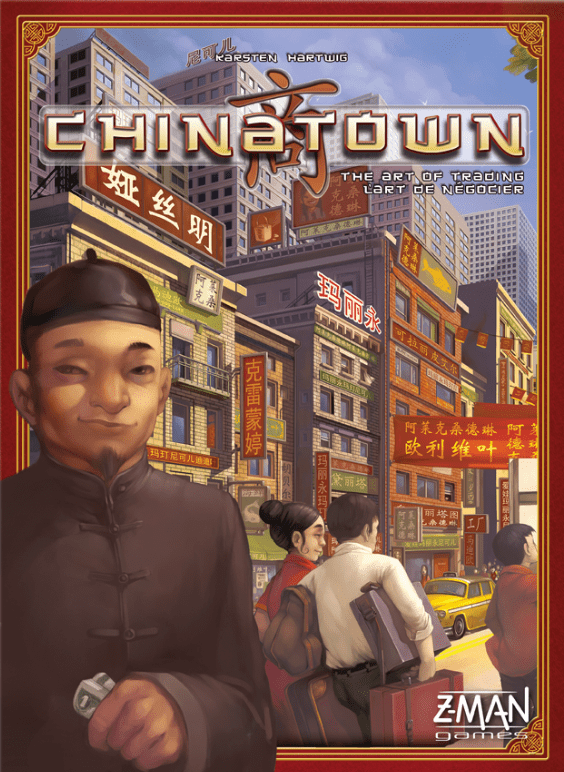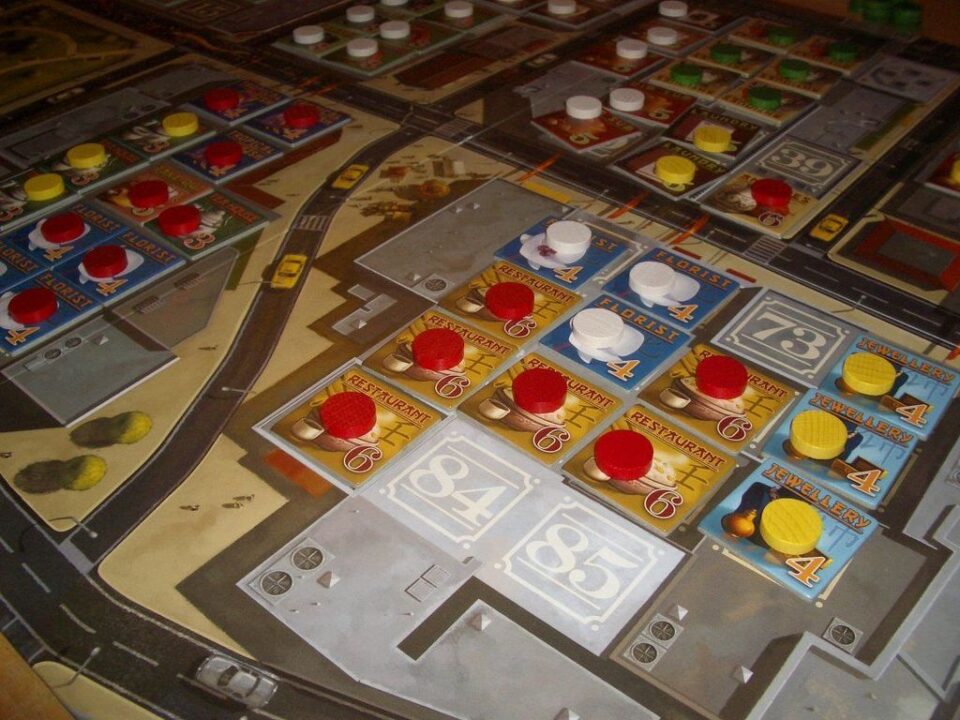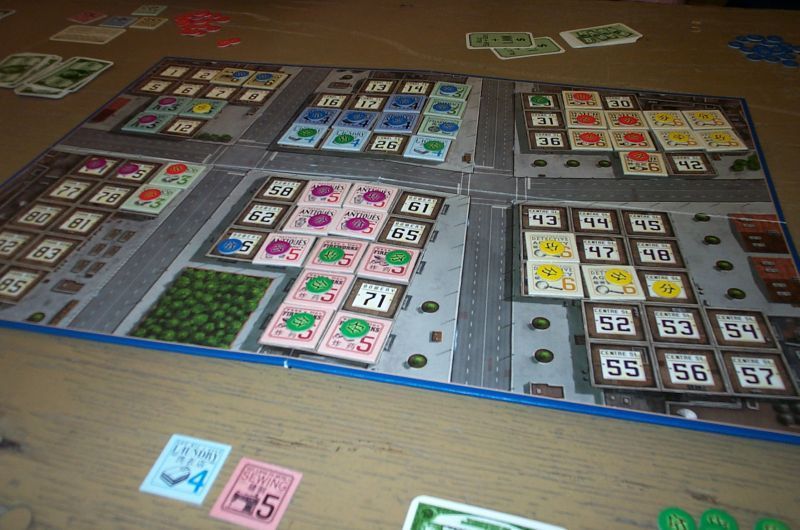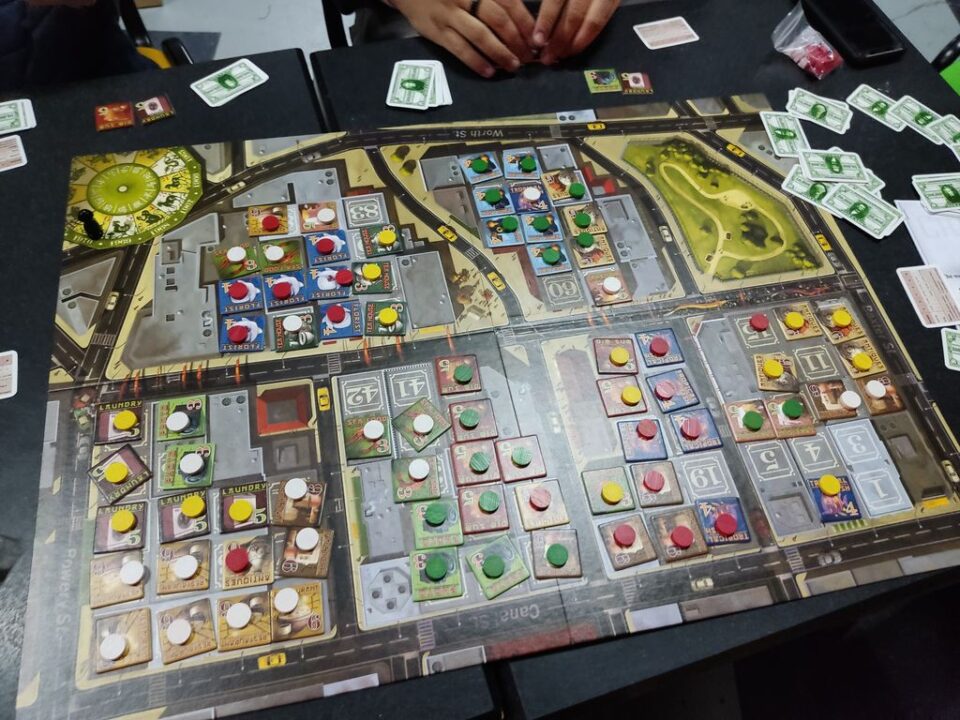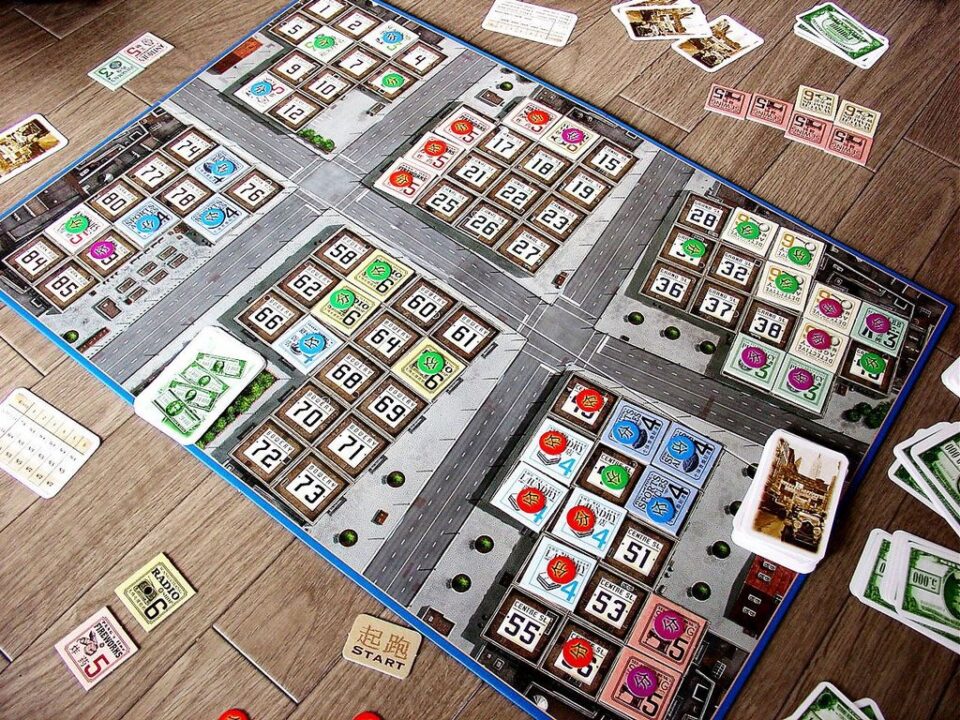Overview
Welcome to my review of ‘Chinatown‘, a board game that takes you deep into the heart of negotiating your way to becoming the ultimate tycoon in the bustling streets of New York’s Chinatown. From the very first play, it’s clear this isn’t just any board game. It’s a strategic battle of wits, where your ability to bargain could mean the difference between victory and defeat. Let’s break down what makes Chinatown a must-have on your game shelf.
How It Plays
Ever dreamt of building your own business empire? Chinatown might just be your board game soulmate. You’ll trade, negotiate, and strategize your way to success in the bustling streets of New York’s Chinatown. Grab a few friends, because this game gets better with a lively crowd.
Setting Up
Setting up Chinatown is a breeze. First, spread out the game board, which depicts the vibrant neighborhood. Each player picks a color and gets the corresponding tokens and building markers. You’ll then deal out the property cards and business tiles. Your goal? To set up shop and dominate the market.
Gameplay
The heart of Chinatown lies in negotiation. Each round, you’ll draw new business tiles and property cards. Got a tile but not the location? Time to talk to your fellow players. You can trade anything – properties, businesses, even future favors. The key is to make deals that benefit you more. Remember, persuasive negotiation and savvy trading are your best tools.
Winning the Game
The player with the most money at the end of the game wins. Money is earned by completing and operating businesses. The larger and more varied your empire, the more cash you’ll rake in. Keep an eye on your competitors and block or outbid them when you can. Strategy is king, but a well-timed deal can crown you the winner.
Want to know more? Read our extensive strategy guide for Chinatown.
Negotiating Your Way to Victory in Chinatown
Let me tell ya, if you’re into making deals and talking your friends into (or out of) things, Chinatown is your alley. It’s all about negotiating to get the best spots and businesses in the bustling heart of New York’s Chinatown. The fun kicks off from the get-go, with players trading anything and everything — from lots to business tiles. It’s like a bazaar in there, folks!
What makes it crackle with energy is that you’ve gotta be sharp. A smooth talker can turn the tables with clever trades, making every game a fresh slice of chaos. I’ve seen quiet nights turn into shouty markets. And guess what? No two games are the same, because it’s not just what you’ve got; it’s what you do with it. Players need to strike a balance between being too greedy and too generous. Otherwise, you might end up helping someone else win.
This leads us nicely to the dicey question of game balance and the role of luck in Chinatown. Stay tuned.
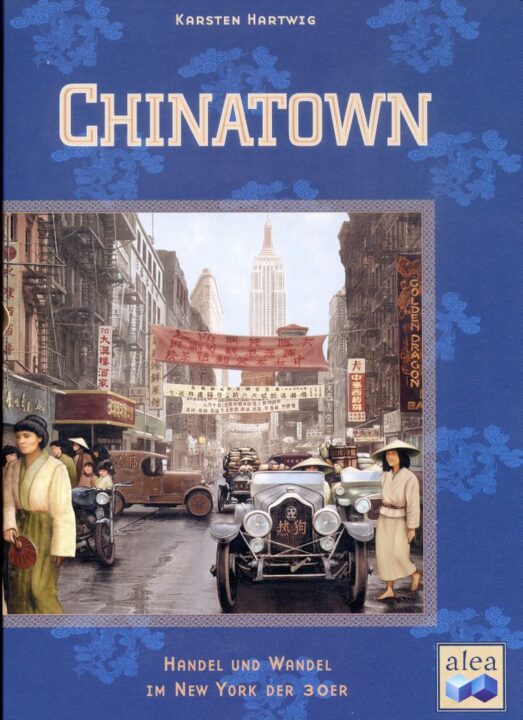
Finding Harmony Between Strategy and Chance in Chinatown
Now, let’s chat about the game balance and luck aspect of Chinatown. This board game does a stellar job mixing strategy with a dash of fortune. Unlike many games where a bad roll of the dice or a poor card draw can ruin your day, Chinatown keeps you on your toes with a balanced mix. Sure, there’s some luck in what properties and businesses you initially get. But, the real meat of the game lies in your ability to wheel and deal. It’s about making the best of what you’ve got through trades and negotiations.
What’s cool here is that even if the luck of the draw isn’t in your favor, you’re never really out of the game. Your fortunes can turn with a well-thought-out trade or two. This balance makes every playthrough feel fresh and keeps all players engaged till the end. It’s a game where strategic thinking and a bit of charm can outweigh bad luck.
Next up, we’ll take a spin around the block covering Replay value and setup time.
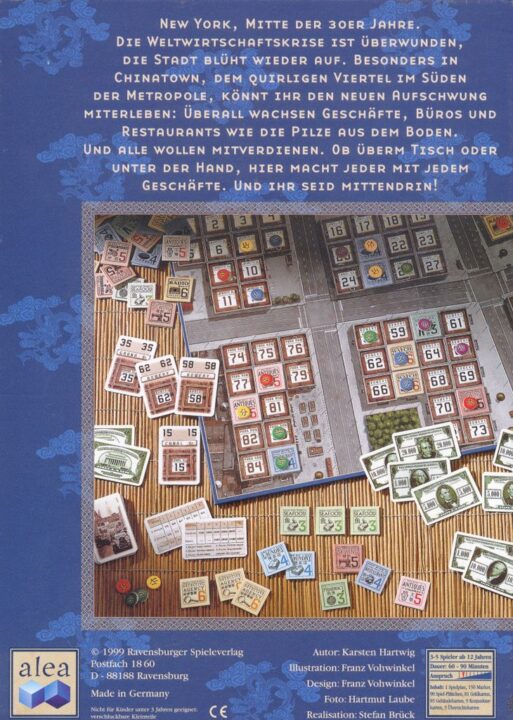
Why Chinatown is a Game Night Staple
When you’re hunting for a board game that won’t get dusty from disuse, Chinatown is a shining gem. It’s all about the replay value. The game setup is a breeze, taking just a few minutes before you’re diving into the bustling streets of Chinatown. Each playthrough unravels differently, thanks to the dynamic negotiations and ever-changing strategies. It keeps the game fresh and engaging, making it a go-to choice for many game nights. Plus, who doesn’t love the rapid setup? It means more time playing and less time fiddling with pieces.
As we wrap this up, let’s not forget what’s coming up next: a deep dive into how Chinatown immerses you in its theme and the quality of its components.
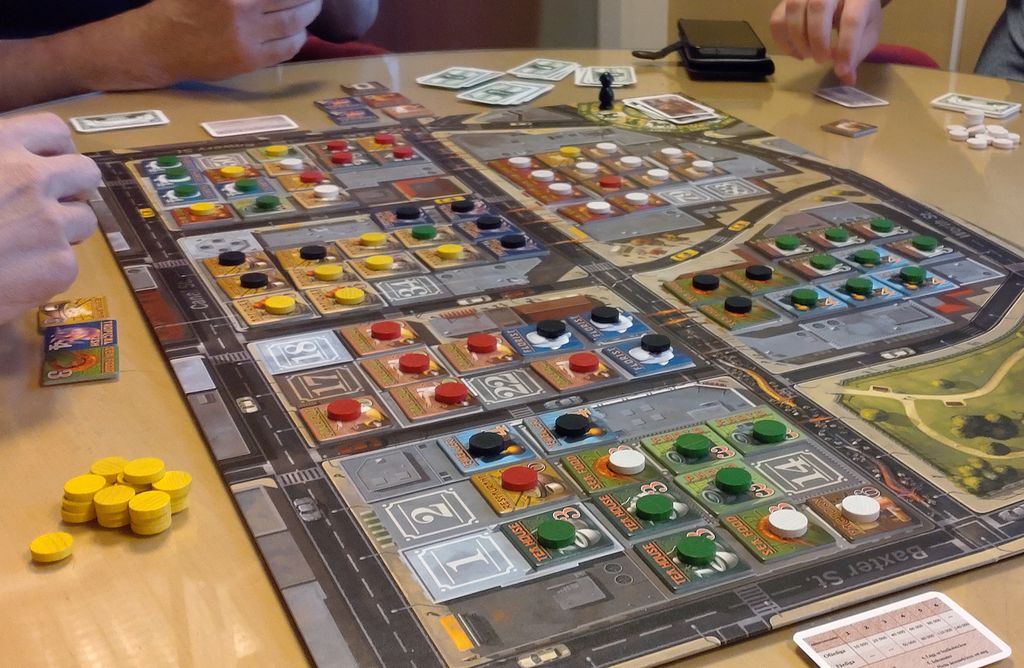
Immerse Yourself in the Bustling Streets of Chinatown
Chinatown isn’t just a game; it’s a trip back in time to the heart of a bustling urban Chinatown. The theme is so immersive, you can almost smell the street food and hear the vendors. This immersion is greatly aided by the high-quality components. The game board, tiles, and pieces feel sturdy and are visually appealing, adding to the overall atmosphere.
The attention to detail in the components helps bring the game to life, making each negotiation and trade feel like a real deal happening on the busy streets. From the building tiles to the business markers, every piece feels like it belongs in the game, enhancing the thematic experience.
Given its immersive theme and top-notch component quality, I highly recommend Chinatown for anyone looking for a deeply engaging board game experience.
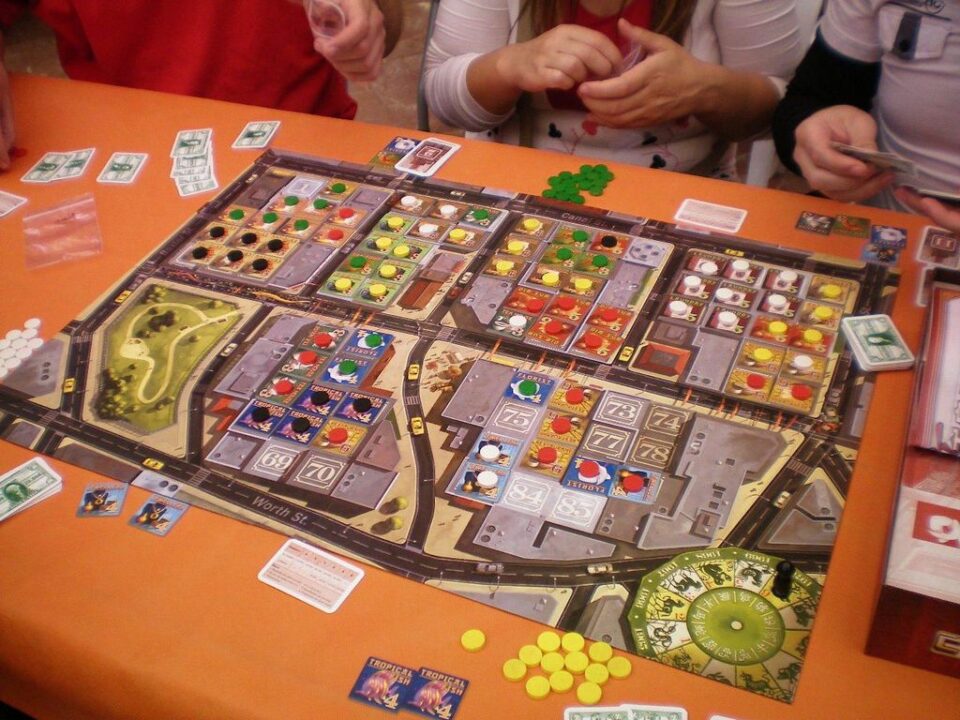
Conclusion
Wrapping up the review, Chinatown truly stands out for its engaging negotiation mechanics, well-balanced gameplay that smartly integrates strategy with just a hint of luck, and superb replay value. It’s a game where every playthrough feels fresh, thanks to its dynamic interactions and the strategic depth offered. The theme immerses players into the bustling world of building a business empire, supported by high-quality components that enhance the overall experience. While it excels in many areas, players looking for a game with zero luck might find the small element of chance a minor setback. However, its emphasis on player negotiation and decision-making more than makes up for this, ensuring that each game is as exciting as the last. For anyone who loves a good deal of negotiation and strategic play in their board games, Chinatown is a must-play. It’s a solid 4.5 out of 5 stars from me, only nudged down by the luck factor that I’m always a bit iffy about. But don’t let that deter you; grab your friends and start trading!

